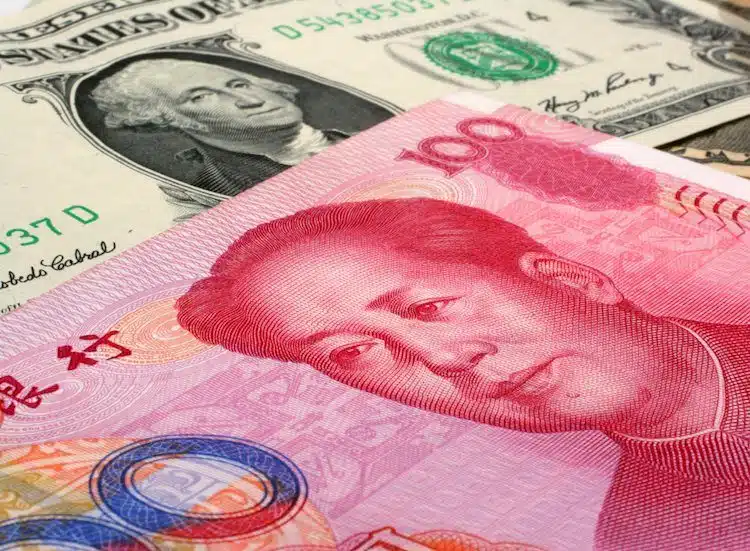The Chinese yuan has been fluctuating between 6.86 and 6.98 against the US dollar for the past three weeks, but Commerzbank economists believe that there is still potential for the yuan to appreciate.
The recent government reshuffle during the annual session of the National People’s Congress marked the end of the latest five-year political succession in China. It is widely believed that the Communist Party will now have a tighter grip on the government under the new leadership line-up.
During the NPC meeting, an extensive restructuring plan was unveiled as the Chinese government undergoes a reorganization every five years. While a highly centralized system may increase top-down efficiency, it also increases the risk of making severe policy mistakes.
Despite these concerns, economists at Commerzbank are optimistic that there is still room for the yuan to strengthen modestly against the US dollar in the long term. If future data indicate a robust post-reopening recovery, market confidence will likely increase, which could further support the yuan.
China’s National People’s Congress is one of the most significant annual events in the country. It is a time when China’s top leaders gather to discuss important issues and set policies for the year ahead. The NPC is also responsible for endorsing a new five-year plan for the country, which outlines China’s economic and social development goals for the next half-decade.
This year’s NPC was particularly noteworthy because it marked the end of the latest five-year cycle of political succession in China. This cycle began in 2017 with the appointment of Xi Jinping to his second term as general secretary of the Communist Party of China.
Xi Jinping’s second term was marked by a series of significant policy changes and reforms. These included efforts to increase the role of the party in virtually every aspect of Chinese society, as well as an ambitious plan to expand China’s global influence through the Belt and Road Initiative.
During the NPC, the Chinese government also announced an extensive restructuring plan. This plan is part of a larger effort to streamline the government and make it more efficient. However, there are concerns that this increased centralization could make the government more prone to making policy mistakes on a large scale.
Despite these risks, there is still room for optimism when it comes to the future of the Chinese economy. The Chinese government has been working to stimulate growth through a variety of measures, including infrastructure spending and tax cuts. If these efforts are successful, then there is potential for the yuan to appreciate against the US dollar.
In addition to these efforts on the domestic front, China has also been working to strengthen its position in the global economy. The Belt and Road Initiative, for example, aims to create a vast network of trade routes connecting China to other parts of the world. China has also been investing heavily in technology and innovation, with the goal of becoming a leader in industries such as artificial intelligence and biotech.
The Chinese government has been particularly interested in pushing for growth in these high-tech industries because they are expected to be a driving force behind future economic growth. By investing in these areas, China hopes to create new industries and jobs that will help the country continue to prosper in the years to come.
Of course, there are still many challenges that China must overcome if it is to continue on its path of economic growth. In addition to the risk of policy mistakes resulting from the government restructuring, there are also concerns about the impact of the ongoing trade war with the United States.
The trade war has already had a significant impact on the Chinese economy, leading to a slowdown in growth and increased inflation. However, the Chinese government has been working to mitigate these effects through measures such as currency devaluation and increased government spending.
Ultimately, the future of the Chinese economy will depend on a wide range of factors, including domestic policies, global trade relations, and technological innovation. While there are certainly risks and challenges ahead, there is also potential for significant growth and development in the years to come. With the right policies and investments in place, the Chinese economy can continue to thrive and offer opportunities for investors around the world.


